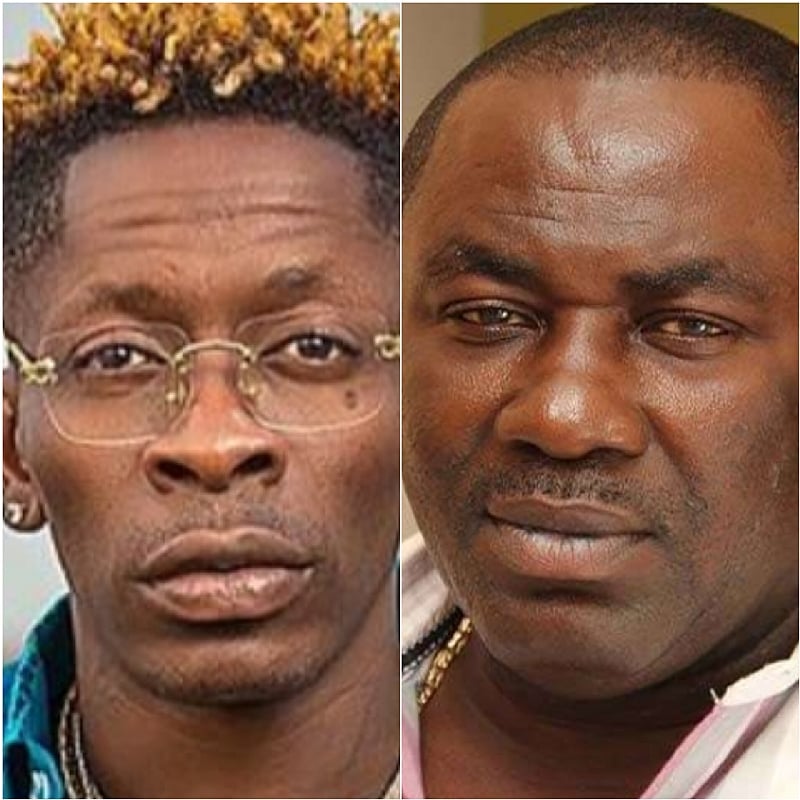Shatta Wale, the controversial Ghanaian dancehall artist, has publicly implored Kwame Despite, the esteemed CEO of Despite Media Group, to intervene and halt the allegedly persistent negative commentary about him emanating from the media conglomerate’s outlets. In a raw and emotionally charged live video broadcast on Facebook, Shatta Wale vented his frustration, emphasizing his respect for Despite while simultaneously issuing a stern warning. He asserted that if the discussions about him don’t cease, he will retaliate with explosive revelations that could have far-reaching consequences, impacting not only the individuals involved but potentially the entire Ghanaian media landscape.
Shatta Wale’s outburst underscored a perceived pattern of targeted negativity from Despite Media, highlighting the case of Bisa Kdei, another Ghanaian musician, as a cautionary tale. He argued that the media group’s relentless criticism of Bisa Kdei’s music as being predominantly “funeral songs” had significantly damaged the artist’s career. This, according to Shatta Wale, demonstrates a destructive pattern of behavior within Despite Media that he fears is now being directed at him. He painted a picture of Bisa Kdei struggling to rebuild his career, implying that the financial gains from his current performances are a testament to his resilience despite the alleged damage inflicted by the media house. This comparison serves as a potent warning to Despite Media, suggesting that Shatta Wale believes he too could face similar professional setbacks if the negative commentary continues.
The dancehall artist’s plea to Kwame Despite was laced with a mixture of respect and thinly veiled threat. While acknowledging Despite as a father figure and role model, Shatta Wale’s message was unambiguous: he expects action. He explicitly mentioned previous attempts to address the issue with Fadda Dickson, Managing Director of Despite Media, claiming his concerns were ignored. This perceived dismissal appears to have fueled Shatta Wale’s frustration, pushing him to issue a more public and forceful ultimatum. The implication is that if his concerns are not addressed directly by Kwame Despite, he will be forced to resort to drastic measures.
The crux of Shatta Wale’s discontent lies in the perceived unfairness and potential damage to his reputation from the ongoing discussions. He believes that the continuous negative attention from Despite Media is not only unwarranted but also a deliberate attempt to tarnish his image and sabotage his career, mirroring what he alleges happened to Bisa Kdei. This perception fuels his threat to expose undisclosed information, suggesting he possesses damaging secrets about the media group or its employees. The veiled threat to involve the FBI adds another layer of complexity, hinting at the potential international ramifications of his threatened revelations.
The gravity of Shatta Wale’s warning lies in its ambiguity. He refrained from specifying the exact nature of the information he threatened to divulge, opting instead to create a sense of suspense and foreboding. This tactic, while potentially controversial, effectively amplifies his message, forcing Despite Media and the public to consider the potential consequences of their actions. The statement “Ghana can’t contain us” underscores the perceived magnitude of the potential fallout, suggesting that the revelations could have far-reaching implications and potentially destabilize the media landscape.
In essence, Shatta Wale’s outburst signifies a power struggle between a prominent artist and a powerful media house. It highlights the tensions that can arise when an individual feels their reputation is being unfairly targeted by media scrutiny. While the precise details of the alleged negative commentary remain unclear, Shatta Wale’s emotional plea and stark warning emphasize the importance of responsible media coverage and the potential damage of unchecked narratives. The situation also underscores the power of social media as a platform for individuals to challenge established media entities and demand accountability. Whether Despite Media will heed Shatta Wale’s warning or the situation will escalate further remains to be seen, but the incident undeniably casts a spotlight on the complex relationship between artists and the media in the digital age.














